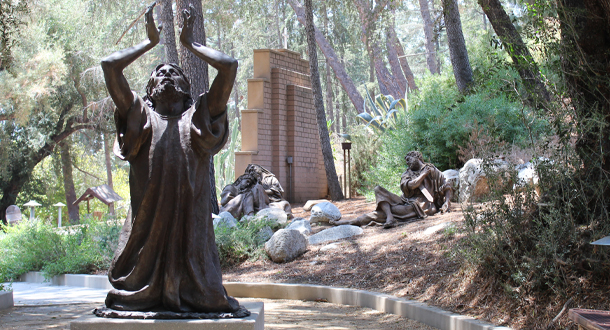
Scripture:
Ezekiel 33:7-9
Romans 13:8-10
Matthew 18:15-20
Reflection:
Repeatedly, Jesus emphasizes love as the basic necessity of discipleship. All else – every commandment, every activity, every community action – flows from love. Simple, right? Oh, how I wish it were!
Love that does no evil or harm to another is a difficult balancing act. I’ve had times where someone has hurt me deeply. I resist the urge to hurt back, acting out of compassion and recognition of their worth in God’s eyes, and sometimes our openness to each other results in mutual forgiveness and reconciliation. Yet in other situations, reconciliation is impossible or ill-advised. I still resist the urge to hurt back, but how do I understand, forgive, love, and wish the best for someone, while keeping myself from being hurt or victimized by them again?
In another vein, we are commanded to hold each other to account for our actions. We must be able to take responsibility, accept corrections, and in cases of wrong-doing, apologize while doing what is possible to restore them to wholeness. I’ve personally experienced correction from people who live or work with me that was truly helpful, changed my perspective, improved our relationship, or prompted me to grow in positive ways. I’ve also experienced correction that served to tear me down with disparaging criticism. Such “correction” is usually birthed out of that person’s insecurities, past wounds, or desire for control and power. Again, how do I manage being corrected in the latter case without violating Jesus’ commands on love?
Most importantly, what about my own actions and motivations? How willing and able am I to tell someone they’ve hurt me without making it personal and destructive? When offering correction to others, in what ways do I act out of my own insecurities, past wounds, or desire for control and power? Are there people in my life who don’t have the courage or personal resources to tell me that I’ve hurt them, and if so, how do I feed that reluctance by my attitudes and actions toward them?
I wish I could give you the answers to all these questions. It’s inadequate to say, “Well, the answer from Jesus is simply to love,” because the rubber hits the road in discerning how to enact God’s love in tough situations. As Jesus says in another passage, it’s easy to love those who are lovable and who love us. It’s a challenge to love those who hurt or are destructive to us.
In my prayer this week, I focus on examining myself for how I can improve, and on praying for wisdom in my most difficult interactions. As I said, it’s not easy! But I trust that over time, and probably with a lot of trial and error, Christ will light my path and instruct me in the ways of divine love. I pray the same for you, too! It’s the only way to live the reign of God in our midst.
Amy Florian is a teacher and consultant working in Chicago. For many years she has partnered with the Passionists. Visit Amy’s website: http://www.corgenius.com/.







